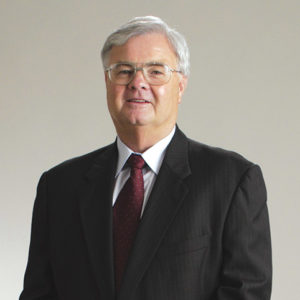calsfoundation@cals.org
Arkansas Capital Corporation
aka: First Arkansas Development Finance Corporation
Arkansas Capital Corporation (ACC) is a private, not-for-profit company that provides financing for economic development throughout the state. It is an uncommon example of cooperation among private citizens, business organizations, and government institutions. It was created under a 1957 statute authorizing development finance companies. In its early years, it made term loans for industrial projects to increase or preserve employment, but beginning in the mid-1980s, it expanded and formed affiliates that, under the ACC umbrella, provided additional types of financing. These included Small Business Administration (SBA) loans as well as working capital, fixed asset, and venture capital financing. ACC is non-political, and it cooperates with local banks and institutions rather than competing with them. Since its inception, this award-winning organization has provided millions of dollars in capital for a wide range of businesses in Arkansas.
The company was incorporated in 1958 as First Arkansas Development Finance Corporation (FADFC). Herbert L. Thomas Sr., who was the founder and CEO of First Pyramid Life Insurance Company in Little Rock (Pulaski County), brought together a large group of business and government leaders to create FADFC, and he served as chairman for several years. The FADFC policy was to make secured, term loans to manufacturing or processing companies. These loans did not meet the standards for regular bank loans, particularly for long-term loans, and FADFC was a lender of last resort.
FADFC was capitalized with $900,000 of non-dividend-paying preferred stock purchased by utility companies in the state, and $100,000 of common stock purchased by 100 individuals. It was governed by a board of twenty-five volunteer citizens. The executive committee and officer positions were rotated among the board members. Even though profitable, its policy is to pay no dividends or distributions to stockholders, as it was established as a not-for-profit devoted to benefit the people of Arkansas.
The enabling legislation in 1957 authorized FADFC to borrow from the state government to fund loans. Before those funds were drawn on, however, Governor Orval Faubus had a disagreement with a board member and declared that no state funds would be available. FADFC was able to supplement its capital funds by borrowing from the SBA and from Arkansas banks. In later years, state funds were borrowed, with balances reaching $40,000,000.
For its first thirty years, the company operated with an executive vice president and two clerical employees. A few loans were made each year, as the company somewhat passively accepted applications. Beginning in 1985, it was determined that the company could perform a wider range of services, and the name was changed to Arkansas Capital Corporation. In 1989, C. Sam Walls joined the staff and, in 1990, was elected executive vice president. Walls later became CEO and served until retirement in 2013. Under his leadership, significant changes were made in the type and volume of activities. Financing was expanded beyond just manufacturing projects, as he recognized that the purpose, as stated in the enabling legislation, was “to promote industrial, business, agricultural and general economic welfare through the creation of employment opportunities.” Under this expanded concept, in addition to loans for manufacturing plants, capital was provided for businesses as diverse as a successful vegetable farm in Lincoln County and a short-line railroad in Union County.
Over time, the firm became a more proactive lender and originated loans for participation with local banks. Several affiliates were created for new types of activity. Six Bridges Capital Corporation (originally Arkansas Certified Development Corporation) was formed to participate in the SBA 504 program. It is paid a fee for originating and managing SBA-funded loans that can be used by qualifying businesses for various purposes. This brings in capital funds from outside of the state.
Recognizing a lack of sources of venture capital, an affiliate Diamond State Ventures was formed by raising $14,000,000 in a limited-partnership form. The second Diamond State Ventures was formed with $19,000,000. Following the success of the first two, a third partnership was funded to add to the sources of venture capital financing in the state.
ACC Relending Corporation obtained funds from a federal program to create a revolving fund for loans. Connect Arkansas used a federal grant to provide a program to promote the use of the Internet in Arkansas. ACC also created the Arkansas Economic Acceleration Foundation, which started a business-plan competition for college students and financed it for its formative years. In addition, it started the Youth Entrepreneurship Showcase, a business plan competition for middle-school students. An affiliate, Heartland Renaissance Fund, has been responsible for obtaining $134,000,000 in federal tax credits for various projects. Pine State Regional Center has brought in more than $25,000,000 in investment capital from foreign sources.
ACC and Sam Walls personally have received numerous awards from the SBA and other organizations for these innovative, successful programs.
Through 2017, retained earnings had increased the capital from $1,000,000 to more than $11,000,000. In its first thirty years of operation, the corporation provided $44,000,000 in capital financing. Over the next thirty years, the total capital provided for Arkansas businesses had grown to over $1,700,000,000.
For additional information:
Arkansas Capital Corporation. http://arcapital.com/ (accessed September 22, 2021).
Thomas, Herbert L., Sr. “A Concept in Cooperation.” Arkansas Economist 4 (Winter 1960): 16–20.
W. W. Satterfield
Little Rock, Arkansas
 Business, Commerce, and Industry
Business, Commerce, and Industry Divergent Prosperity and the Arc of Reform, 1968–2022
Divergent Prosperity and the Arc of Reform, 1968–2022 Sam Walls
Sam Walls 




Comments
No comments on this entry yet.